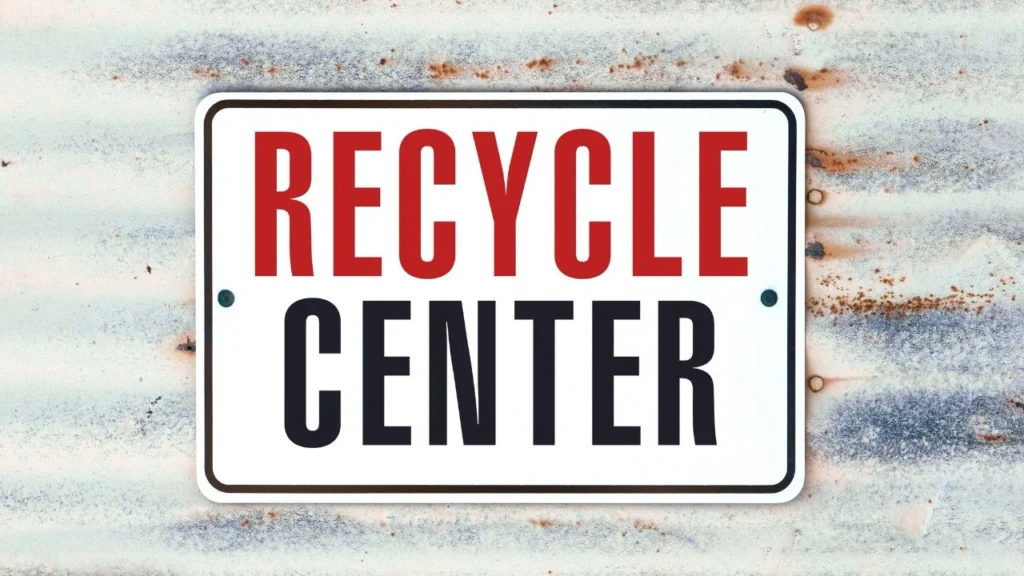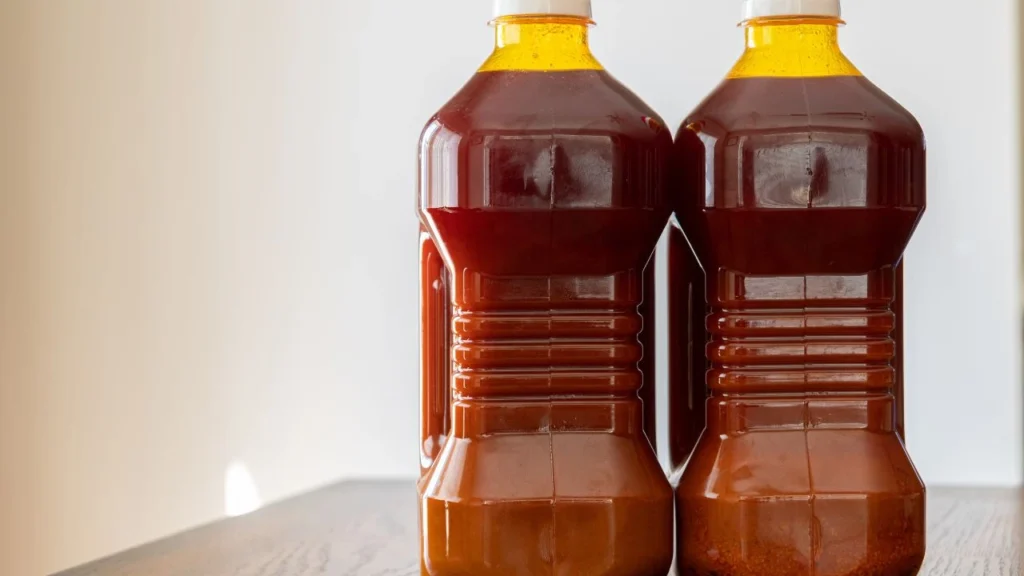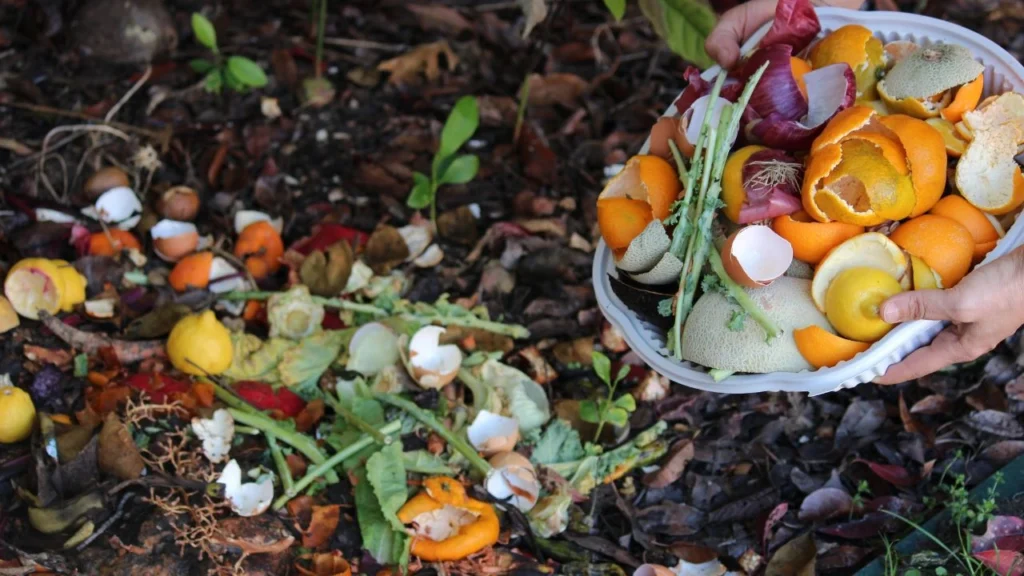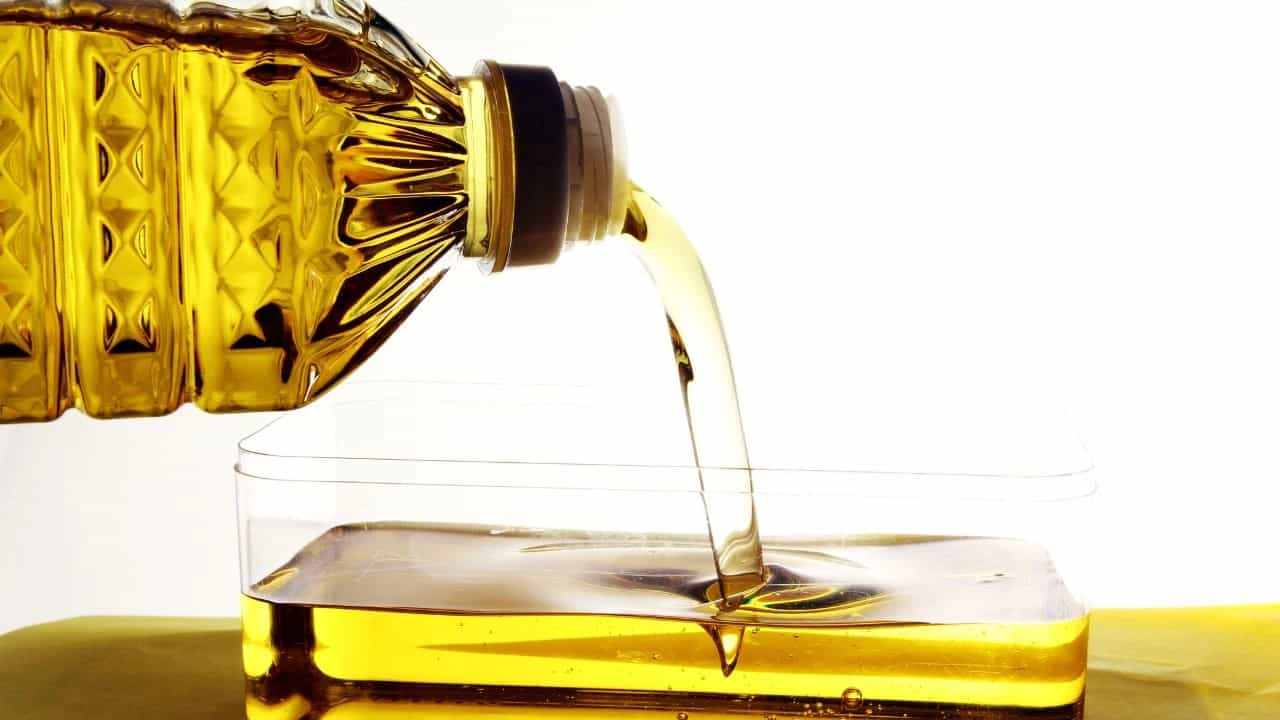Ever had a pot full of used cooking oil and wondered what to do with it? Dumping it in the ground might seem easy, but it’s actually harmful. In this blog, you’ll learn how to get rid of that greasy problem without hurting the planet.
Ready for some tips on answering the question, ‘can you dump cooking oil in the ground?’
Why Disposing of Cooking Oil in the Ground is Harmful
So, moving from the basics of oil disposal. Throwing cooking oil on the ground seems easy but it’s bad news for our planet. The Environmental Protection Agency (EPA) has warned against it because it can hurt or even kill animals.
Imagine, just a liter of waste oil can mess up to one million liters of water—that’s a lot of clean water gone down the drain! And that’s not all; plants struggle too when this oil seeps into the soil.
Their roots get coated in oil, making it tough for them to grow properly. Some may not survive at all.
And let’s talk air and soil—the impact goes there too. Oil dumping throws off the nutrient balance in the soil; this means plants don’t get what they need to thrive. Also, harmful gases from improper disposal add to air pollution problems we’re already battling with every day.
It’s like adding fuel to an unwanted fire—literally and figuratively speaking—affecting everything around us more than we might realize at first glance.
Proper Disposal Methods for Cooking Oil

Finding the right way to get rid of cooking oil is crucial, especially in a busy kitchen. You’ve got options that won’t harm the planet or clog the pipes.
Use a grease disposal system
So, you’re left with a pan brimming with used cooking oil, uncertain about its disposal? Let’s discuss the employment of a system meant for grease disposal. First things first, allow the oil or grease to cool down.
Nobody wants a boiling disaster on their hands. Once it’s cool, spoon that fatty delight into a disposable container. Perhaps an old coffee can or plastic takeout container you were planning to toss anyway.
Here’s the catch—don’t instinctively toss it into your garbage can. First, make sure to fasten your container securely in a plastic bag to avoid any potential leaks. If you’ve got the room, continue employing the same container until it’s thoroughly filled before you actually throw it in the trash.
This strategy keeps your kitchen neat and tidy while also giving a little helping hand to Mother Nature by reducing waste.
Take to local recycling centers that accept used cooking oil
You know that old cooking oil? Don’t just toss it in the trash. Local recycling centers are a game-changer here. First, strain out any food bits from the oil. Put it in a container you can seal up tight.
This keeps things neat and tidy. Then, take this sealed container to a nearby recycling spot that says yes to used cooking oil.
Finding where to drop off might sound like looking for a needle in a haystack, right? But hold on—Earth911.com is your friend here. A quick search gives you locations near you ready to take that greasy problem off your hands.
Easy as pie! Plus, by doing this, you’re part of the recycling heroes’ club—turning waste into something useful while keeping our planet cleaner.
Convert to biodiesel
After taking your used cooking oil to a recycling center, consider how it can embark on a new journey. Transforming waste into biodiesel fuel is not just smart—it’s like turning old leftovers into liquid gold.
This process contributes to renewable energy production, making use of something that would otherwise clog up our planet. The market for recycling this golden goo is booming, expected to reach sky-high figures between $11.2 and $13.96 billion by 2032.
Recycling centers and biodiesel production facilities prioritize converting your kitchen waste into sustainable fuel. It’s a win-win: you get rid of the grease responsibly, and the world gets a splash of green energy.
By donating your used cooking oil for biodiesel production, you’re not just cleaning up; you’re powering up tomorrow’s rides with yesterday’s fries.
Innovative Recycling Options for Used Cooking Oil

Got a vat of used cooking oil and thinking outside the fryer? Good news—turning that greasy problem into a green solution is easier than you think. Dive in to discover how your old oil can fuel cars or keep hands clean.
Commercial Biodiesel Production
Transforming your spent cooking oil into biodiesel is like performing the perfect balancing act. You eliminate waste and contribute to fuel production. This procedure isn’t limited to just big companies these days.
Factories take spent oil from kitchens just like yours and convert it into biodiesel – a more eco-friendly energy source. The recycled oil market is positively bustling, projected to hit the sweet spot between $11.2 and $13.96 billion by 2032.
By directing your spent oil to these facilities, you’re participating in a bigger push for green energy solutions and the concept of a circular economy. Who would have thought your leftover fryer oil could be fuelling buses or trucks tomorrow? And keep in mind, every gallon you recycle moves us further from fossil fuels and closer to environmental sustainability.
Making Homemade Soap
Moving from biodiesel, let’s talk soap. Yes, your used cooking oil can turn into homemade soap. It’s a fun way to recycle kitchen waste and dive into sustainable living. Making soap might sound complex, but it’s simpler than you think.
All you need is used cooking oil, lye, and some basic tools.
This process is not just eco-friendly; it also lets you create eco-friendly cleaning products right in your kitchen! You control what goes into your soaps, making them great for sensitive skin.
Plus, think about the bragging rights – “I made this soap from yesterday’s fries.” How cool is that?
Mistakes to Avoid in Cooking Oil Disposal

Ah, cooking oil disposal… it’s like walking a tightrope over a pit of mistakes. One slip—like pouring it down the drain or thinking your garden would love some oily dressing—and you’re in trouble.
Trust me, you don’t want to learn the hard way. So, stick around for some tips that’ll keep things smooth in the kitchen and beyond!
Never Pour Down the Drain
Pouring cooking oil down the drain is quite a blunder. Consider it as if you’re pouring candle wax directly into your sink. Just as wax firms up and clings, hot cooking oil cools and turns solid in your pipes.
This could lead to some severe blockages that are challenging to eliminate. And, it’s not just about the mess— rectifying these blockages can indeed take a chunk from your budget, too.
So, say hypothetically, you’ve already made the misstep and let some oil slide down the drain? Don’t fret just yet! Try using baking soda and vinegar to flush it out, or pick up an enzyme-based cleaner.
These methods can help you rectify the oily error without the immediate need to call in the pros. Just a little heads up, you’re always better off being safe with your drains.
Avoid Dumping in the Compost or Garden
So, you know pouring oil down the drain is a no-go. What about into your compost or garden? That’s off-limits too. Cooking oil can wreak havoc in your green space. It coats plants and soil, stopping air and water from getting through.
This suffocates the ecosystem living in your garden.
You might think, “It’s organic, so it must be okay,” but that’s not how it works with oils. Large amounts of cooking oil added to compost piles attract unwanted visitors like rodents and pests.
Plus, animal fats shouldn’t mix with compost because they take ages to break down and smell awful as they do. Protect wildlife and keep those pesky critters away by finding another way to dispose of your used cooking oil responsibly.
Regulations and Guidelines for Cooking Oil Disposal

Ever felt overwhelmed about how to dispose of used cooking oil? No worries, it’s a common problem. Let’s get right to the essentials here—regulations and guidelines for disposing of oily waste. And yep, there are rules… believe me, they’re simpler than figuring out how to fold a fitted sheet. Curious? Well, keep reading!
Household Disposal Guidelines
So, you’ve got some used cooking oil and not sure how to ditch it without making Mother Nature frown? Here’s a no-fuss guide. Let that oil or grease cool down first. Nobody wants a kitchen disaster on their hands! Once it’s cooled, grab it and scrape it into a container you don’t mind saying goodbye to.
This could be an old coffee can or milk jug. Now seal that soon-to-be-gone friend in a plastic bag before chucking it into the trash. If you’re feeling like a eco-warrior, reuse the same container over time until it tells you “no more” because it’s full.
Here’s the kicker: by sticking to these household cooking oil disposal rules, your home stays clean and green longer… And guess what? You’re keeping those pesky pipes clear too—bonus points for no emergency plumber visits!
Commercial establishment regulations
Dumping cooking oil in your kitchen’s backyard? A big no-no, I must say. The law takes a firmer stance on this, especially when it comes to businesses like yours. You see, those stringent rules aren’t just for the sake of pretenses.
They exist because mishandling disposals can result in penalties that will take a hit on your budget. And let’s not forget, in many places, it’s outright illegal to throw that slick issue down the sink or out back.
But hey, understanding these rules doesn’t have to be a migraine-inducing process. Each city has its own rulebook, however, adhering to the legal requirements for disposing of used cooking oil keeps inspectors away and the environment grateful.
Ever considered using grease disposal systems made specifically for commercial kitchens? Or perhaps partnering up with recycling centers eager to transform that waste into something of value again—like biodiesel fuel.
Staying within the good graces of municipal laws means no unpleasant surprises during those health inspections…or even worse, discovering hefty penalties lurking in your mailbox.
Conclusion
So, you’ve got a pan full of used cooking oil and the ground outside is calling your name? Think twice! Tossing that grease in the dirt isn’t doing Mother Nature any favors. It’s like inviting trouble to your backyard barbecue.
But hey, there are brighter ways to deal with it. From turning old oil into biodiesel to crafting homemade soap, your kitchen leftovers could start their second life. And if DIY isn’t your style, local recycling centers are on standby, ready to take that greasy problem off your hands.
Let’s keep our drains clear and gardens green by choosing the smart way out.
FAQ
Is it okay to dump cooking oil in the ground?
Hold your horses! Dumping cooking oil into the ground is a big no-no. It’s harmful to plants, animals, and can even contaminate our water sources.
What are some proper disposal methods for used cooking oil?
You’ve hit the nail on the head by asking this question! One of the best ways to dispose of used cooking oil is by placing it in a sealed container and taking it to a local recycling center. Some cities even have curbside programs for waste like this.
Can I reuse or recycle my old cooking oil?
Absolutely! You’re singing my song now! Used cooking oil can be filtered and reused multiple times before needing disposal. And if you’re feeling particularly green-thumbed, you might consider turning your old frying fat into homemade biodiesel!
What happens if I don’t properly dispose of my used cooking oil?
Well, that’s where things get sticky (literally!). If improperly disposed of, not only does it pose an environmental hazard but also potential plumbing nightmares as well – clogged pipes aren’t anyone’s idea of fun!
Resources
https://www.budgetdumpster.com/blog/how-to-dispose-cooking-oil








